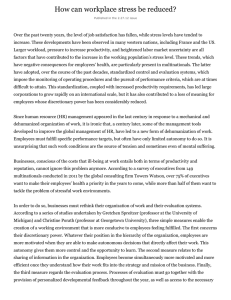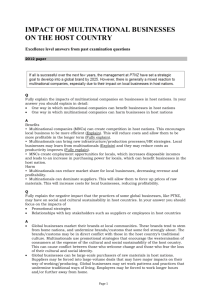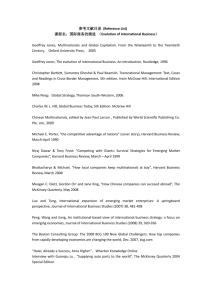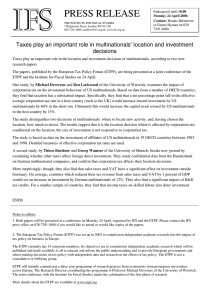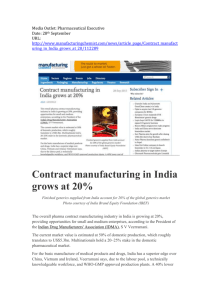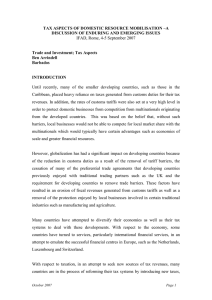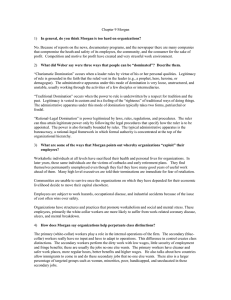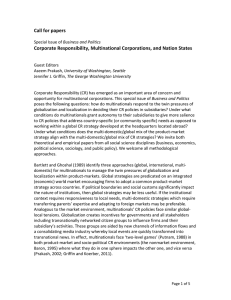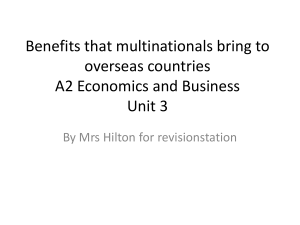Lecture11 - Duke University`s Fuqua School of Business
advertisement
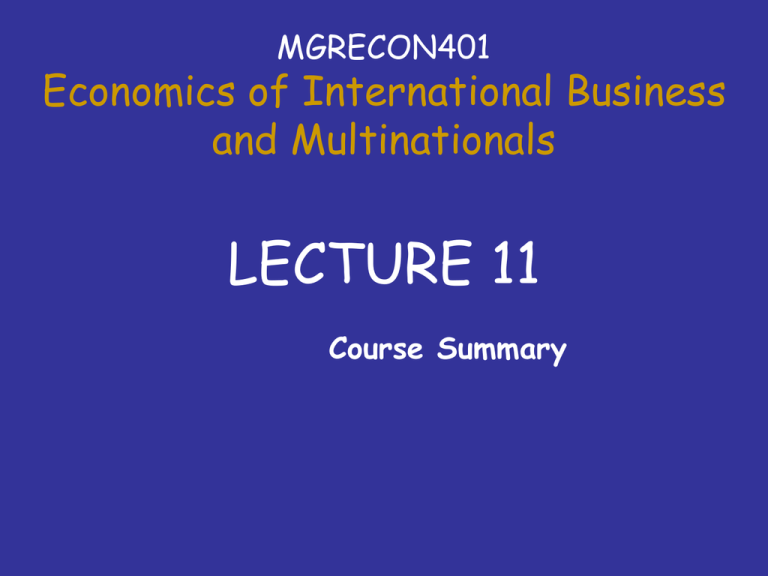
MGRECON401 Economics of International Business and Multinationals LECTURE 11 Course Summary 14-2 Why Study Multinationals? Multinationals exist to create value. How? How should a multinational be managed? 14-3 How Do Multinationals Create Value? Minimize cost of serving global market. Offering new products and services around the world. Multinationals serve as global intermediaries. 14-4 How Do Multinationals Minimize Cost? Globalize markets and production Standardize product Economies of scale Unit labor cost Plant fixed costs Transportation costs 14-5 Multinationals, R&D, and Product Variety Multinationals perform a significant amount of R&D Often produce new, technologically complex products, large fixed costs High degree of product differentiation 14-6 Multinationals as Global Intermediaries Efficient use of resources sometimes requires inputs from various countries. Multinationals coordinate the efficient use of resources: missing markets. Internalization: Ownership and Control 14-7 Managing a Multinational Global efficiency Local responsiveness Worldwide learning 14-8 Global Efficiency Carefully identify core competence Worldwide product orientation to coordinate global production 14-9 Local Responsiveness Recognize when it’s important Tailor product to local preferences Tailor production to local conditions Worldwide area orientation with significant autonomy to maximize flexibility 14-10 Worldwide Learning Use all global resources to pursue common goals: globally linked. Know what everybody is doing and make accessible to all: globally leveraged. Elaborate mechanisms to facilitate worldwide learning. 14-11 The Dynamic Global Environment Tariffs, subsidies, quotas, dumping, local content requirements World Trade Organization Regional Trade Agreements Telecommunications, Financial Services, Intellectual Property, MultiFibre Agreement 14-12 Cases Nokia Caterpillar Tractor Toyota Nike Komatsu BP Rudi Gassner/BMG Xerox and Fuji Xerox GM Jack Welch/GE
